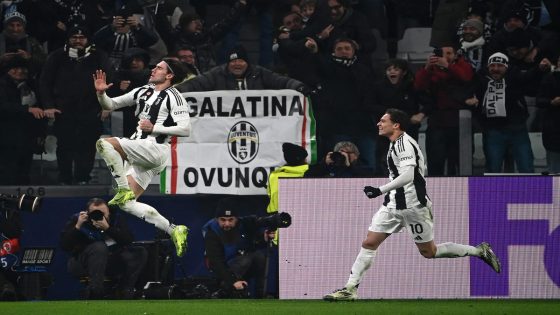Watching Juventus train on Tuesday was John Elkann, the chairman of the club’s majority shareholder, Exor, and scion of the Agnelli family.
Elkann isn’t a stranger to the Continassa, the estate where the team works out on Turin’s city limits. He delegated the running of the club to his cousin, Andrea, for years and is more regularly seen in the Ferrari garage at Formula 1 races, watching his other team as they prepare to welcome Lewis Hamilton to the Scuderia.
That Elkann made his presence felt this week was both significant and simultaneously not entirely unexpected. On the one hand, Manchester City’s arrival in Turin represented Juventus’ biggest game since their return to the Champions League. It took some fans back four and a half years, the time when unfounded rumours of Juventus attempting to hire Pep Guardiola ran wild on social media. In the end the only result he got for them came in the 2023 Champions League final when City stopped Juventus’ bitter rivals Inter from winning the competition.
On the other, Elkann’s photo opportunity with coach Thiago Motta and the executive team was taken as a show of support at a time when enthusiasm for the new Juventus has waned. The team was whistled at half-time at the weekend. Motta had been sent off against his old club, Bologna, who were 2-0 up and sensing their first win in Turin since 2011. Had Juventus lost it would have broken their unbeaten start to the season in the league; a stat that, on the face of it, makes everything seem rosy.
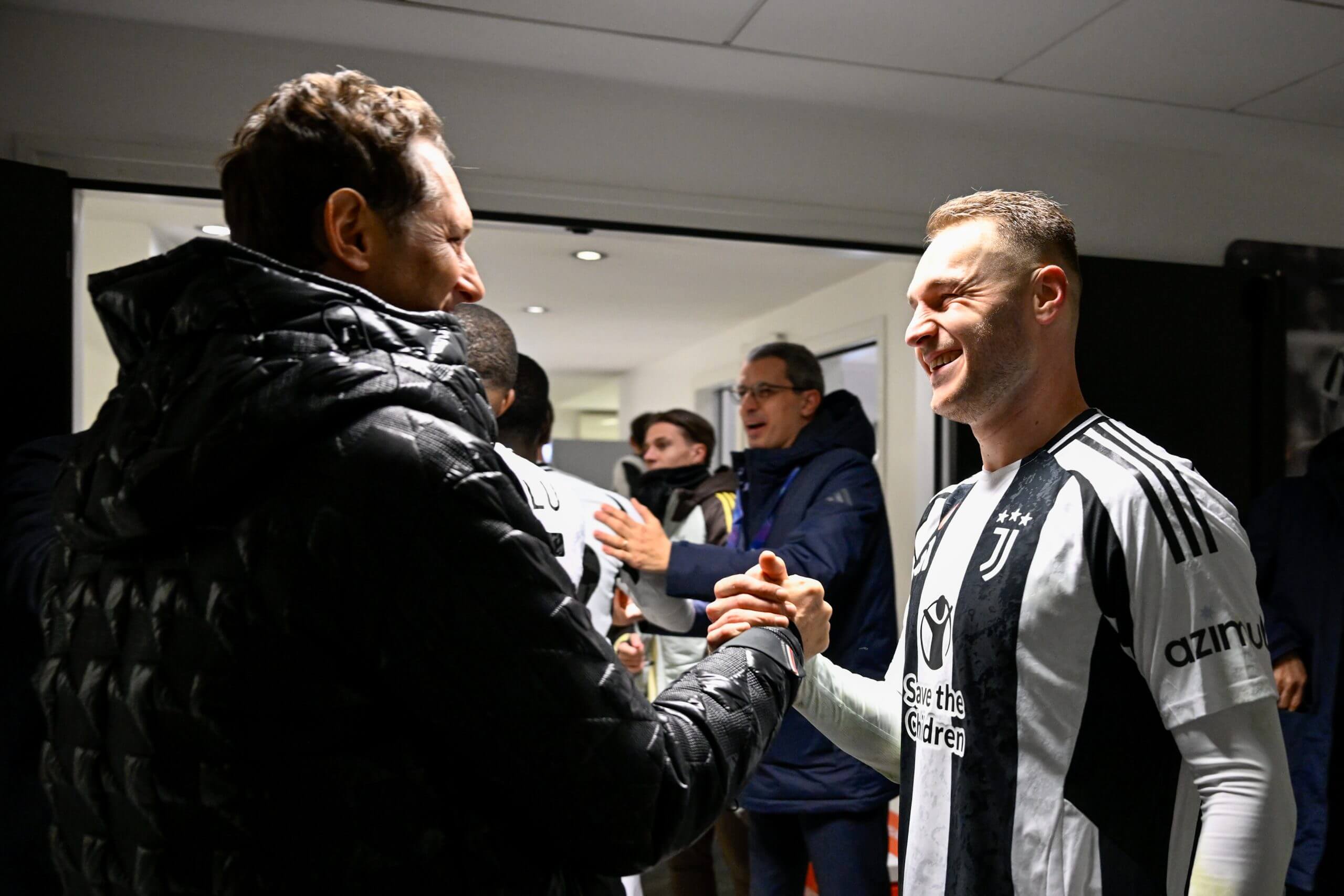
But this isn’t a repeat of Antonio Conte’s debut campaign when Juventus were invincible. A record series of draws has left supporters frustrated. Juventus rallied and came back against Bologna as they did in Leipzig and in the Derby d’Italia; two games that stand out as thrilling exceptions in an otherwise soporific season.
More was expected from Motta after he improbably kept Spezia up and led Bologna to their first appearance in Europe’s top-tier competition in 60 years. The fluid, avantgarde football he implemented at the Renato Dall’Ara seemed light years ahead of Max Allegri, his predecessor at Juventus, whose style was instead considered from the dark ages.
Elkann, for what it’s worth, did his part. After recapitalising the club repeatedly during Covid, Juventus committed more than €200million (£165m; $210m at current rates) on eight new players. Half of that went on midfielders Douglas Luiz and Teun Koopmeiners alone.
The overhaul seemed to have an overwhelming initial effect. Juventus rolled over Como and Hellas Verona 3-0. They didn’t concede for their first six league games. But the early flurries were down to unsustainable low-percentage shooting from distance.
The difference in philosophy from Allegri did not change the experience of watching them either. They were drab in other ways. If late stage Allegri was about Juventus defending in their own penalty area, starving strikers of service and edging games with xG-defying moments, early days Motta was about passing, passing and passing to stop the opposition from having the ball without knowing how to use it decisively in the final third. Juventus’ possession often felt defensive, cagey and when they tried to open up, it coincided with their best defender, Gleison Bremer, blowing out his knee.
Injuries began to mount just as the first doubts started to set in about the comparability of a coach like Motta with Juventus’ DNA. His past as a treble winner with Inter had been graciously overlooked. Other coaches with his profile — the ones who believe how you win is as important as winning itself (Gigi Maifredi) — tend not to last more than a year at Juventus. Maurizio Sarri, for instance, was sacked even after winning the last of the club’s nine-consecutive league titles.
Elkann presumably discerned Motta was losing the benefit of the doubt with the media and the fanbase. The team wasn’t clicking. Aside from Francisco Conceicao and, more recently Khephren Thuram, the new signings have been slow burns. Douglas Luiz has made only a couple of starts in the league and, while he has had some fitness issues, the penalties he gave away in back-to-back games against Leipzig and Cagliari seem to have made Motta reluctant to trust him on a regular basis.
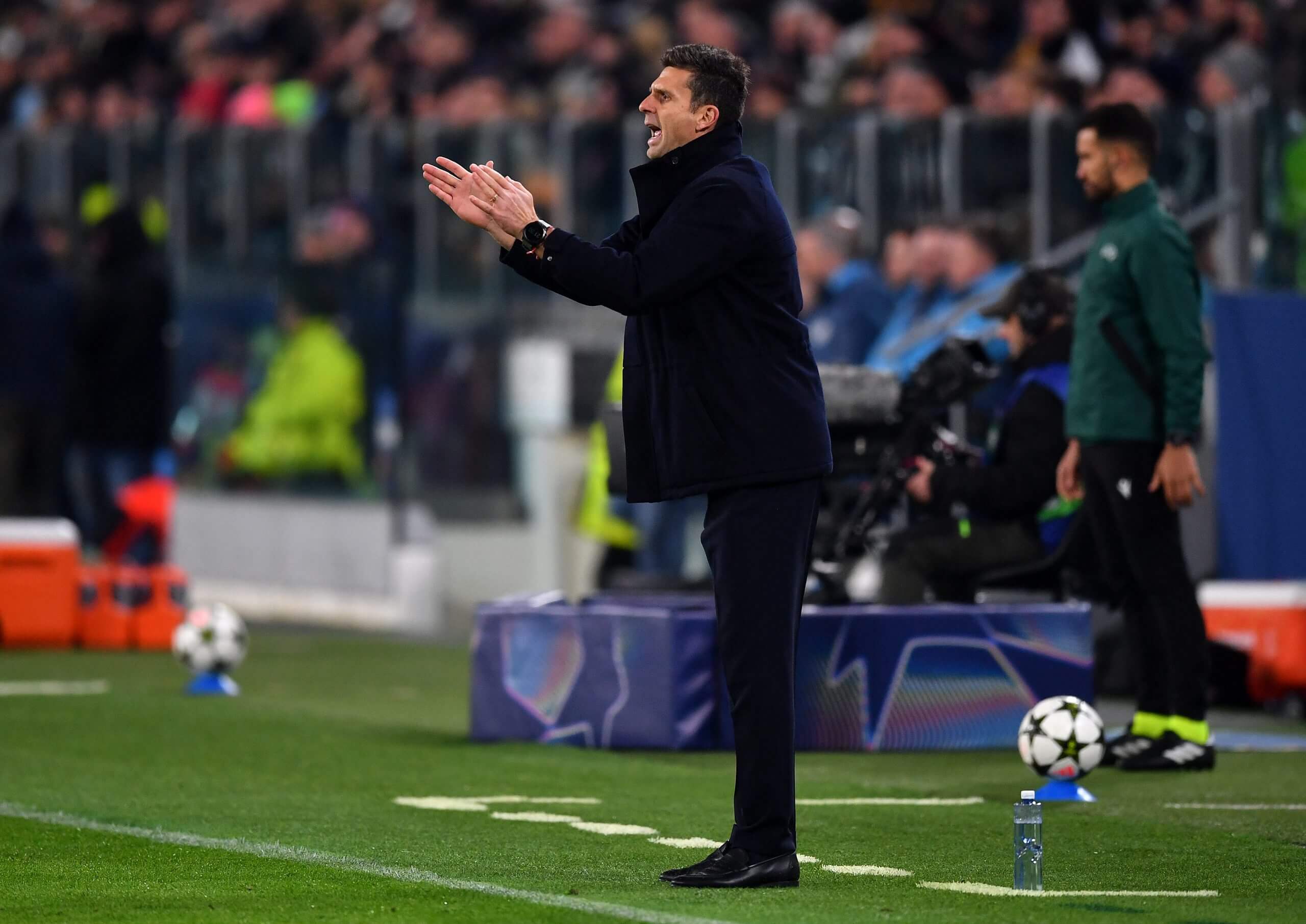
His fellow Brazilian, the captain Danilo, was conspicuous by his absence from Motta’s first line-ups — particularly given his intelligence and ability to play hybrid roles, as showcased under Andrea Pirlo. While on international duty in November, Dusan Vlahovic expressed a preference to play with a strike partner a la Aleksandar Mitrovic.
It raised another point. Had Juventus’ managing director of football, Cristiano Giuntoli, made the team stronger or weaker in his year in charge? Even if Motta wanted to satisfy Vlahovic’s wish and play two up top, he can’t. Tim Weah and even Weston McKennie have been tried as alternative nines. Juventus’ back-up centre-forward Arkadiusz Milik has been out all season and Moise Kean was sold to Fiorentina, who find themselves on an eight-game winning streak in Serie A, in part, because of his goals. Nico Gonzalez, the winger who later came the other way, swapping Florence for Turin, missed out on the last World Cup with Argentina through injury and isn’t one of the most reliable players fitness-wise.
Luiz, like Gonzalez and Koopmeiners, is 26 and they are supposed to be entering their peaks. It is still perhaps too soon for Juventus to have seen their best but a greater contribution was forecast. Gonzalez and Koopmeiners may have arrived late in the window but they were moving within the same league and wouldn’t need to adapt too much.
Their relative lack of impact has placed more pressure on the likes of Kenan Yildiz to step up. Yildiz’s emergence last year was so impressive it gave Juventus the confidence to hand him Paul Pogba’s No.10 shirt and to take €15million from Liverpool for Federico Chiesa which, in fairness to Giuntoli, looks a better deal now than it did at the time. Yildiz’s brace in the fightback against Inter offered another reminder of his talent but, as much as he likes to copy Alessandro Del Piero’s tongue-out celebration, he is not as ready to take this team on his shoulders as consistently as the club legend did in his late teens back in the early 90s.
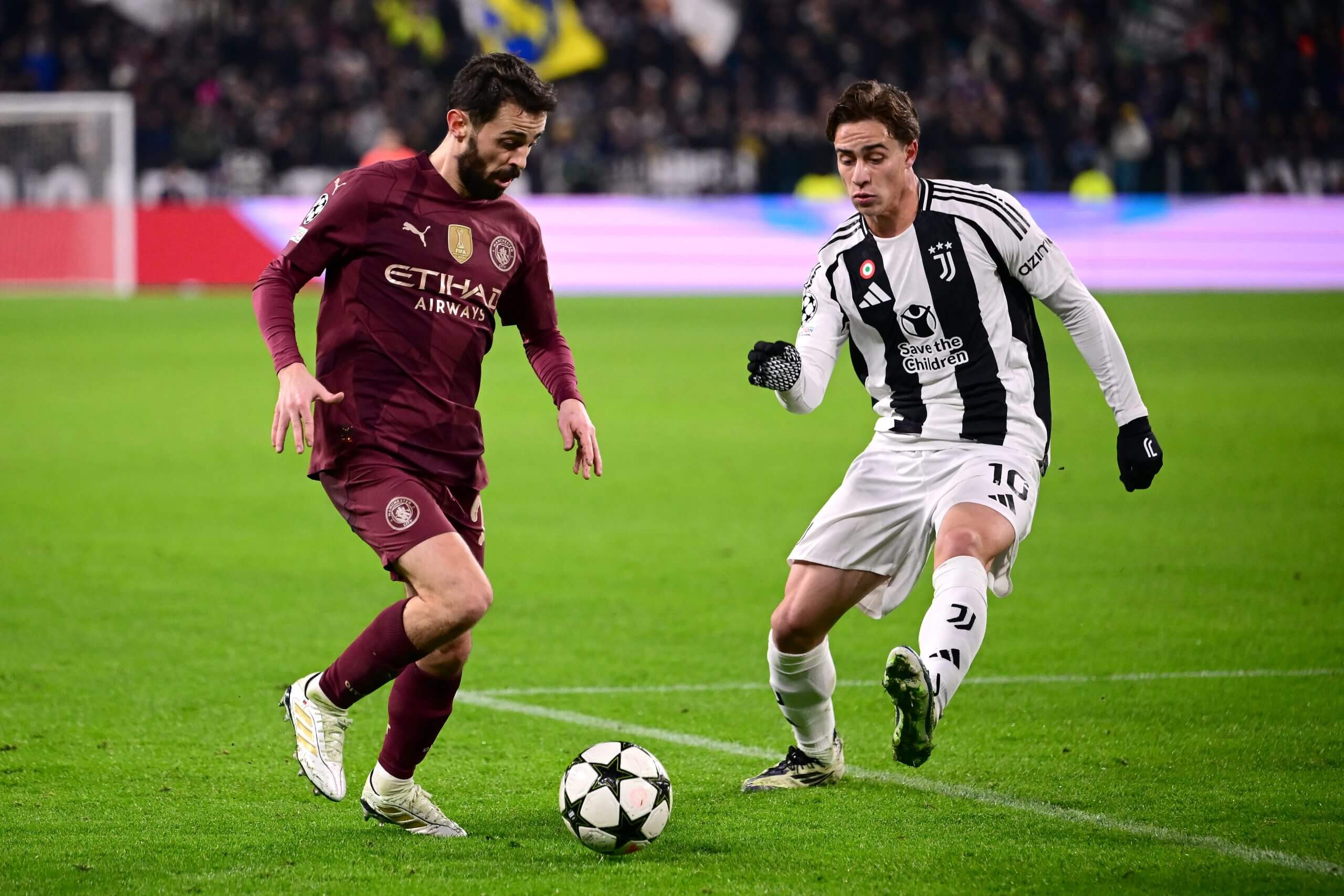
The team, as a whole, feels in transition, a word that never used to enter the Juventus vocabulary. Sixth in the league, eight points adrift of leaders Atalanta, nine back on this stage last year required intervention. Elkann provided it by turning up at the Continassa. It felt reminiscent of the time Silvio Berlusconi backed Arrigo Sacchi after a defeat by Espanyol in his first season at AC Milan. The reaction it provoked was exactly what Motta and the crowd at the Allianz Stadium wanted to see.
It didn’t come immediately against Manchester City. The fans were disgruntled at half time. It was 0-0 (again) and there were noticeable grumbles. But after the interval Juventus stepped up, showed renewed determination and pounced on City’s mistakes. Danilo displayed his class, Federico Gatti knocked on Ederson’s door then Vlahovic and McKennie barged it down.
The performance was encouraging, the 2-0 win prestigious. It regenerated some of the enthusiasm that had faded. Nevertheless this club has always judged itself on results first. Motta knows Juventus’ motto: “Winning isn’t important, it’s the only thing that counts.”
Allegri, in his second spell, beat a good Chelsea side and the game was fleetingly used to suggest Juventus were back. In the end, he won one Coppa Italia in three tumultuous seasons.
It remains to be seen if Motta’s Juventus build on defeating a City in crisis.
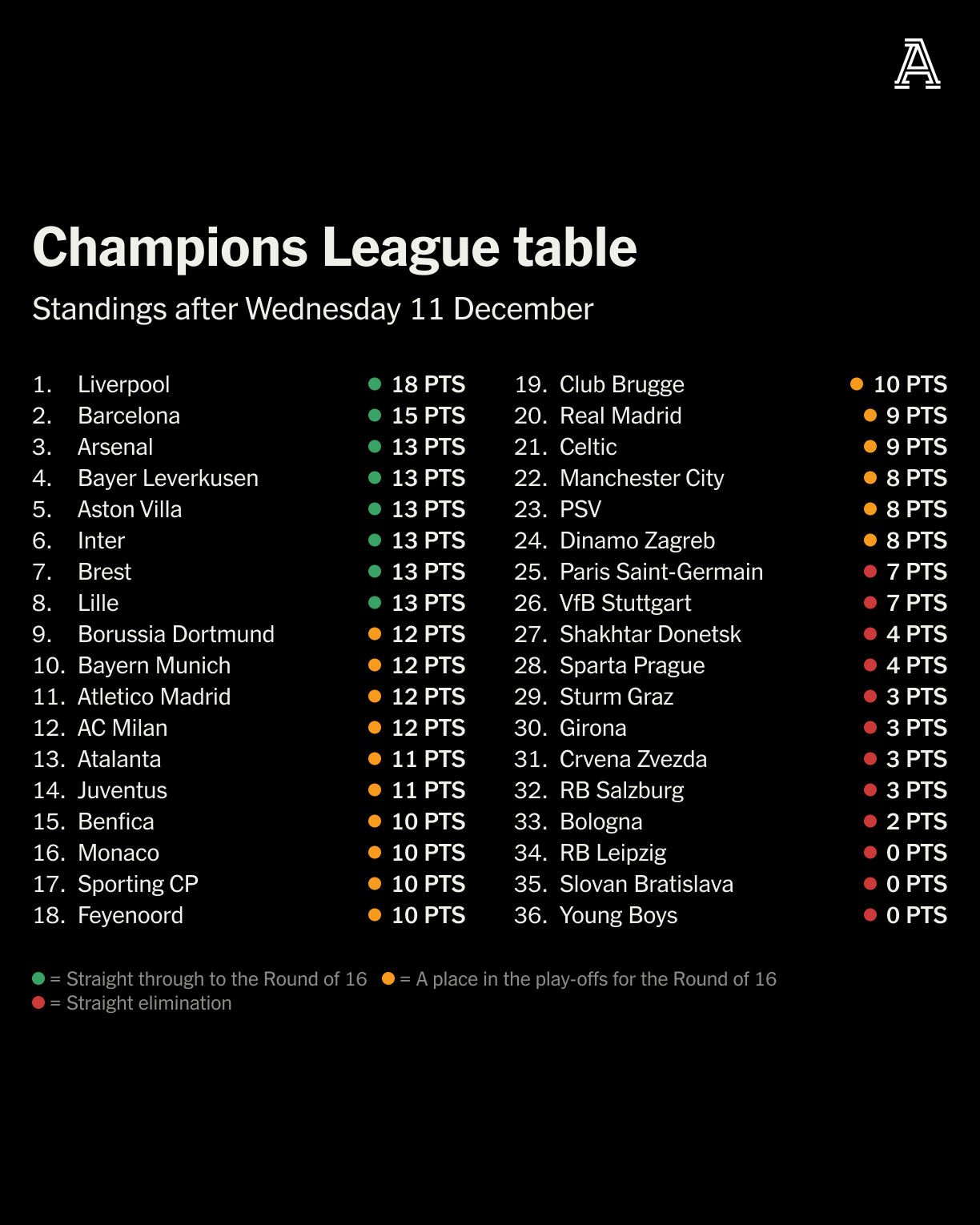
(Top photo: Isabella Bonotto/AFP via Getty Images)
